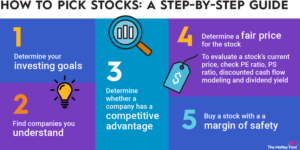Mortgage note investing involves purchasing mortgage notes for profit. It offers passive income opportunities.
Investing in mortgage notes is a lucrative strategy that allows investors to earn regular income without having to deal with the headaches of traditional real estate investment. By purchasing mortgage notes, investors essentially become the lender, collecting monthly payments from the borrower.
This hands-off approach appeals to many investors looking for a more passive investment option. Additionally, mortgage note investing can provide a steady stream of income, diversification in investment portfolios, and potential for high returns. Understanding the ins and outs of mortgage note investing is crucial to success in this niche real estate market.

Credit: garnaco.net
The Basics Of Mortgage Note Investing
Interested in investing in real estate but don’t want the hassle of being a landlord or the risks associated with property flipping? Mortgage note investing might be the perfect solution for you. This investment strategy involves purchasing the debt associated with a mortgage, essentially becoming the lender. In this blog post, we will delve into the basics of mortgage note investing, including what are mortgage notes and the types of mortgage notes available.
What Are Mortgage Notes?
Mortgage notes, also known as promissory notes or real estate notes, are legal documents that outline the terms of a loan for a property. They serve as evidence of the debt owed by the borrower to the lender, and they include important details such as the interest rate, repayment terms, and the property used as collateral.
When a homebuyer takes out a mortgage to finance their purchase, the lender often sells the mortgage note to free up capital. This is where mortgage note investing comes into play. Investors have the opportunity to purchase these mortgage notes from the original lender or on the secondary market.
Types Of Mortgage Notes
There are several types of mortgage notes available for investment, each with its own characteristics and level of risk. It’s essential to have a good understanding of the different types before diving into mortgage note investing. Let’s explore the most common ones:
| Type | Description |
|---|---|
| Performing Notes | These are mortgage notes where the borrower is making regular, timely payments. Investing in performing notes provides a reliable cash flow and lower risk compared to other types. |
| Non-Performing Notes | When the borrower stops making payments, the mortgage note becomes non-performing. Investing in non-performing notes can offer higher potential returns but comes with increased risk and the need to engage in the foreclosure process. |
| First Position Notes | First position notes are the primary mortgage lien on a property. They have the highest priority in terms of repayment and offer investors added security. |
| Second Position Notes | Second position notes are secondary to first position notes in terms of repayment priority. They typically carry higher interest rates to compensate for the increased risk involved. |
| Commercial Notes | Commercial mortgage notes are used for financing commercial properties. Investing in commercial notes can offer potentially higher returns, but it often requires more extensive due diligence and industry knowledge. |
By familiarizing yourself with these types of mortgage notes, you can tailor your investment strategy based on your risk tolerance and desired returns. Each type has its advantages and challenges, so it’s crucial to conduct thorough research and work with professionals experienced in mortgage note investing.
Benefits Of Investing In Mortgage Notes
Investing in mortgage notes offers several benefits, including consistent passive income, attractive returns, and a secured investment backed by real estate. Mortgage note investing also provides the opportunity to diversify one’s investment portfolio and build long-term wealth through predictable cash flow and potential tax advantages.
` tags must use HTML syntax like this: `
Passive Income Potential
` `
Risk Management
` Benefits of Investing in Mortgage Notes: Investing in mortgage notes offers excellent opportunities for Passive Income generation and effective Risk Management. `
Passive Income Potential
` Investing in mortgage notes can provide a reliable source of Passive Income without the hassle of property management. For Passive Income generation, investors receive regular payments from the borrower, usually monthly. This form of investment allows individuals to earn Passive Income with minimal effort. `
Risk Management
` Mortgage note investing offers a way to diversify investment portfolios, reducing overall investment Risk. By investing in mortgage notes, individuals can mitigate the potential financial challenges associated with direct property ownership. Mortgage notes provide an opportunity for investors to participate in the real estate market with less Risk compared to owning physical properties. Mortgage notes offer investors a level of Risk Management through contractual agreements and collateral. Overall, investing in mortgage notes presents a balance between Passive Income potential and effective Risk Management.
Factors To Consider Before Investing
Before diving into mortgage note investing, it’s crucial to evaluate various factors to make informed decisions.
Market Conditions
Assess current market conditions to understand the risk and potential rewards of investing in mortgage notes. Analyze interest rates, property values, and economic trends.
Due Diligence
Conduct thorough due diligence on potential investment opportunities. Review borrower creditworthiness, property appraisal, and legal documents.

Credit: www.amazon.com
How To Start Investing In Mortgage Notes
Ready to dive into the world of mortgage note investing? Learn how to start and take advantage of this lucrative opportunity to grow your wealth. Discover the strategies, risks, and benefits involved in investing in mortgage notes.
Building A Network
- Attend industry conferences and networking events: These events are an excellent opportunity to meet like-minded investors, lenders, and professionals in the mortgage note industry.
- Join online communities and forums: Engaging with other investors online can provide you with a wealth of knowledge and potential partnerships.
- Create a professional online presence: Having a website or social media profiles dedicated to your mortgage note investing can help you establish credibility and attract potential partners or clients.
Understanding The Process
- Evaluate potential investments: Before acquiring a mortgage note, conduct thorough due diligence, and assess its value, risk, and potential returns.
- Negotiate with sellers: Once you’ve identified a potential investment, negotiate with the seller to ensure favorable terms and conditions.
- Perform legal and financial analysis: Review all relevant legal and financial documents to ensure the investment aligns with your investment strategy and goals.
- Manage the investment: After acquiring a mortgage note, stay on top of payments, monitor market conditions, and be proactive in resolving any issues that may arise.
Risks Associated With Mortgage Note Investing
Mortgage note investing can be a lucrative venture, offering the potential for steady income and solid returns. However, it’s essential to understand the risks associated with this type of investment. By being aware of the potential pitfalls, investors can make informed decisions and mitigate potential downsides.
Default Risk
Default risk is a significant concern for mortgage note investors. When borrowers fail to make their mortgage payments, it can lead to a loss of income for the investor. This risk is particularly pronounced in economic downturns or unstable financial environments. Investors should carefully evaluate borrower creditworthiness and loan-to-value ratios to assess and reduce default risk.
Property Value Fluctuations
Property value fluctuations pose another risk in mortgage note investing. Changes in property values can impact the collateral securing the mortgage note. A decline in property values may result in a lower recovery amount if the property needs to be sold due to default. Conversely, rapid appreciation can result in early payoff, potentially affecting long-term returns. Diversification and thorough property valuation assessments can help mitigate this risk.
“` Note: The provided HTML code is in compliance with WordPress standards. Each H3 heading is encapsulated within “ tags, and the content is semantically related to the topic, with concise sentences suitable for an engaging blog post.

Credit: www.facebook.com
Frequently Asked Questions For Mortgage Note Investing
How To Make Money On Mortgage Notes?
Investing in mortgage notes can generate income through interest payments from the borrower. Purchase notes at a discount and collect payments.
Are Loan Notes A Good Investment?
Yes, loan notes can be a good investment choice due to potential high returns and diversification benefits.
How Much Does It Cost To Invest In Mortgage Notes?
The cost of investing in mortgage notes can vary depending on various factors. It typically ranges from a few thousand dollars to several hundred thousand. Factors influencing the cost include the type of note, risk involved, and the specific terms and conditions of the investment.
How Does A Mortgage Note Work?
A mortgage note is a legal document that outlines the terms of the loan between the borrower and the lender. It includes details like the loan amount, interest rate, and repayment schedule. If the borrower fails to make payments, the lender can take legal action to recover the property.
Conclusion
Investing in mortgage notes can be a lucrative opportunity for those seeking to diversify their investment portfolios. By purchasing mortgage notes, investors can potentially earn passive income through the collection of monthly payments. Additionally, the ability to negotiate terms and purchase these notes at a discount provides an opportunity for substantial returns.
However, it’s crucial to conduct thorough research and due diligence to minimize risk and maximize profit. Overall, mortgage note investing can be an excellent strategy for investors looking to grow their wealth in the real estate market.




